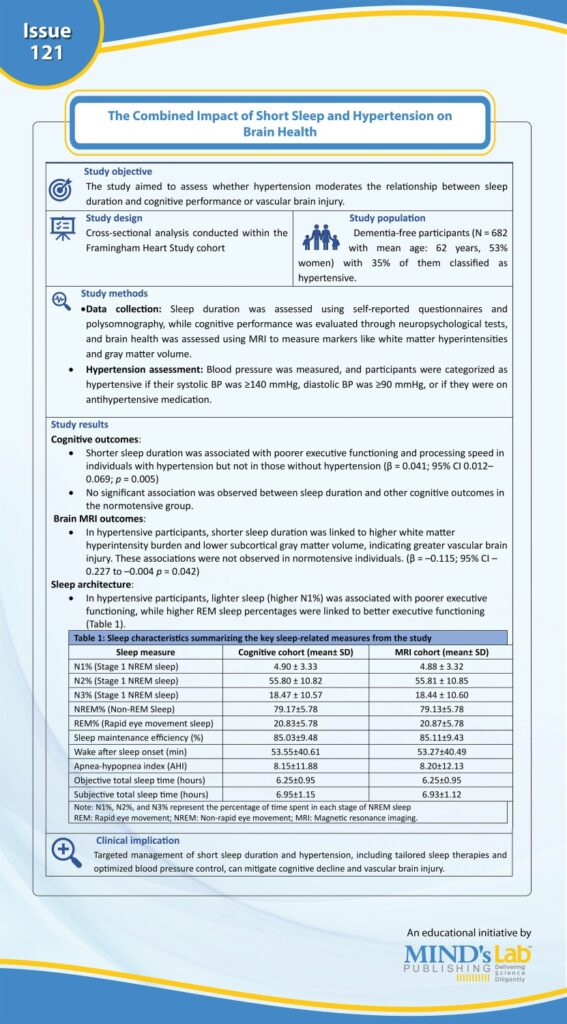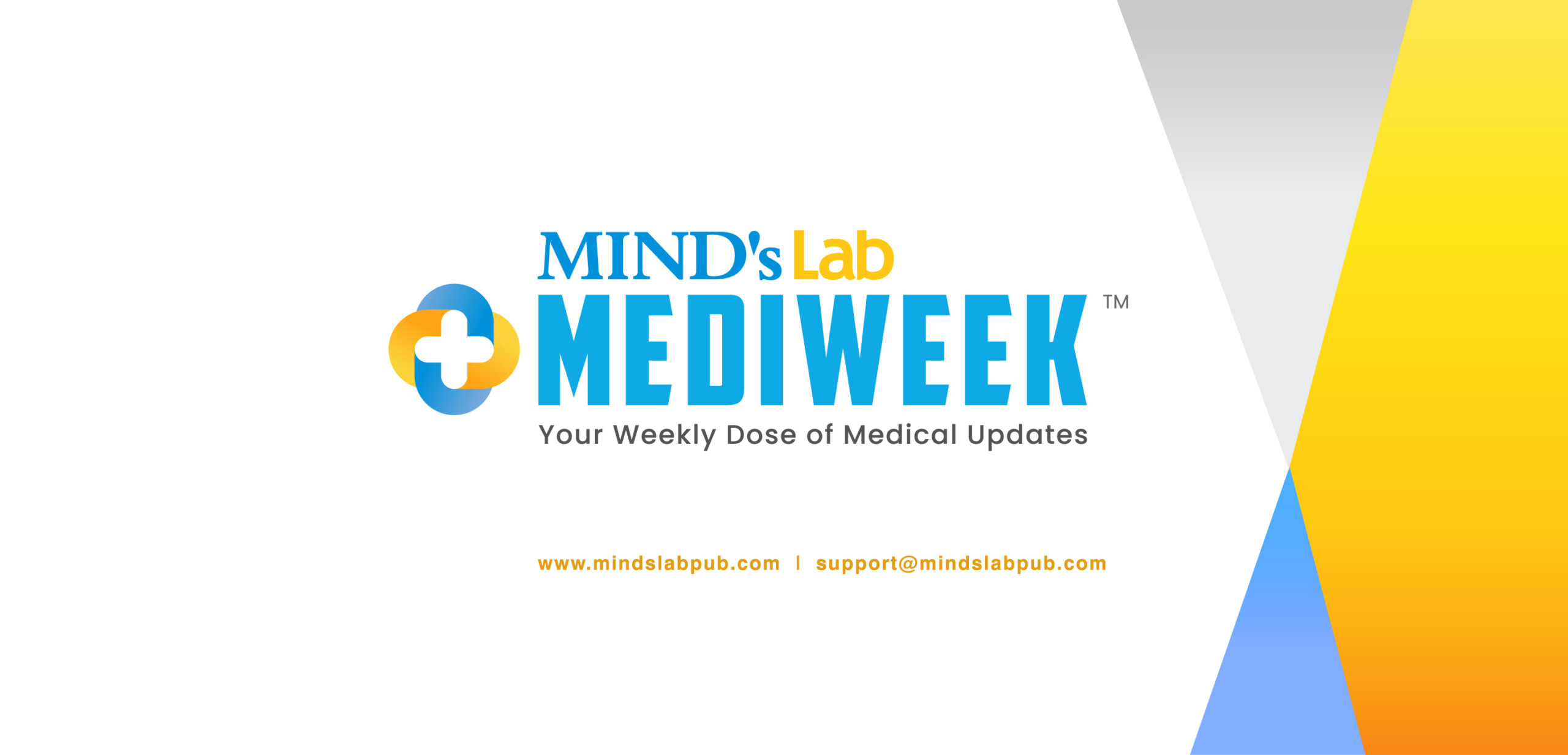
Recently, there has been a growing recognition regarding detrimental effects of insufficient sleep and hypertension on brain health. Short sleep duration, defined as less than the recommended seven hours per night, has been associated with an increased risk of cognitive impairment, dementia, and vascular brain injury. Similarly, hypertension, particularly in midlife, is a well-established risk factor for late-life cognitive decline and dementia. Hypertension contributes to structural brain changes such as white matter hyperintensities, gray matter atrophy, and cerebrovascular damage, which are linked to cognitive dysfunction.
Despite these known risks, the combined impact of short sleep and hypertension on brain health has not been thoroughly explored. Sleep plays a critical role in regulating blood pressure, with normal sleep associated with a “dipping” blood pressure pattern at night. Insufficient sleep can disrupt this pattern, leading to nocturnal hypertension and increasing the burden on the brain.
A recent study published in the “JAHA” addressed this gap by examining whether hypertensive status moderates the relationship between sleep duration and brain health outcomes, including cognitive performance and magnetic resonance imaging (MRI) markers of vascular brain injury. This research highlights the potential for targeted interventions addressing both sleep and hypertension to mitigate cognitive decline and promote brain health (see Graphic).

(Source: Yiallourou S, Baril AA, Wiedner C, et al. Short Sleep Duration and Hypertension: A Double Hit for the Brain. Journal of the American Heart Association. 2024; 5;13(21):e035132.)
